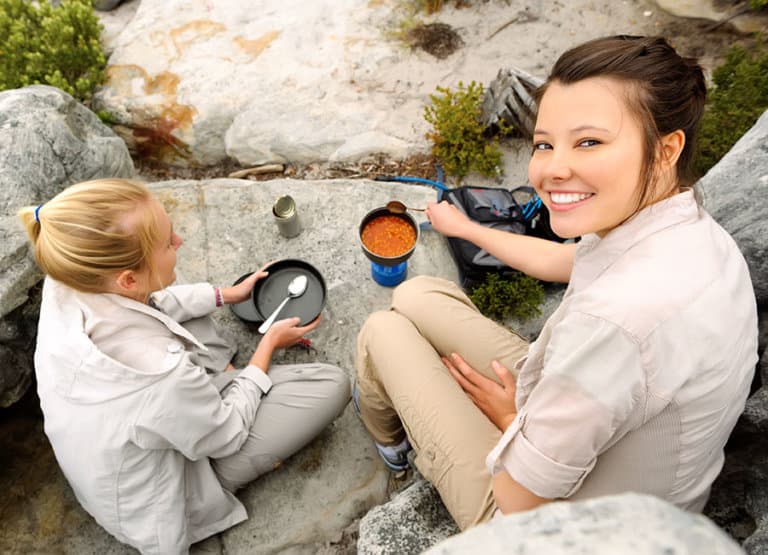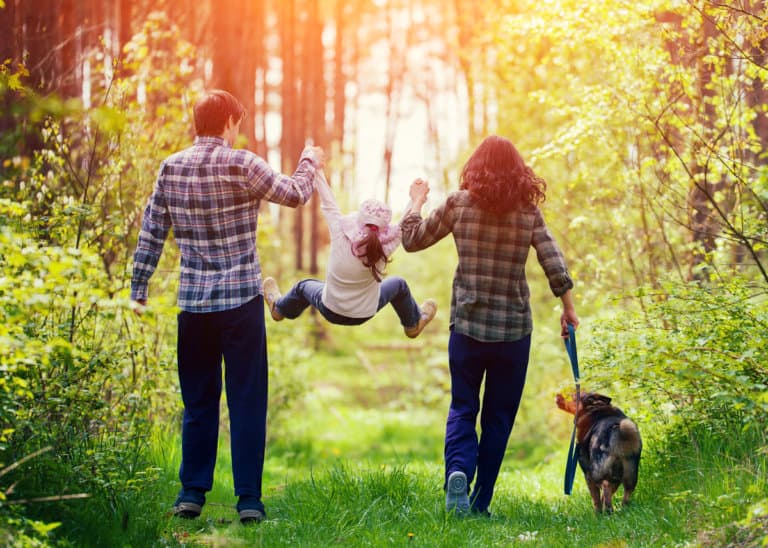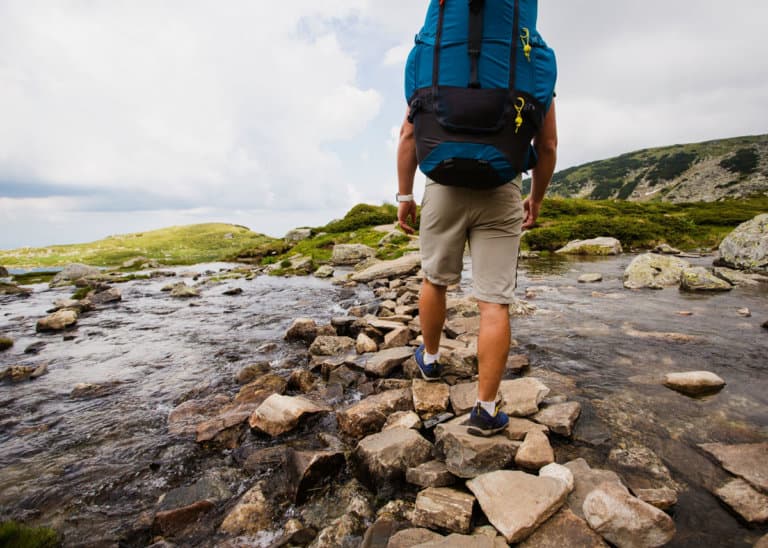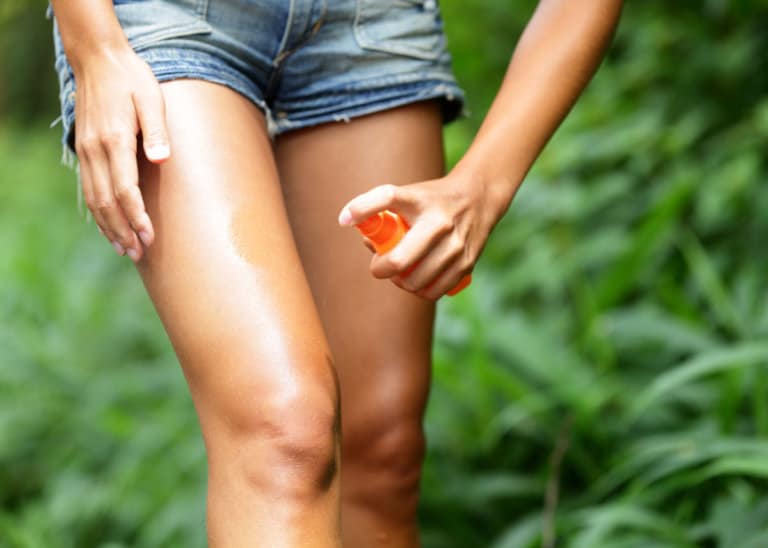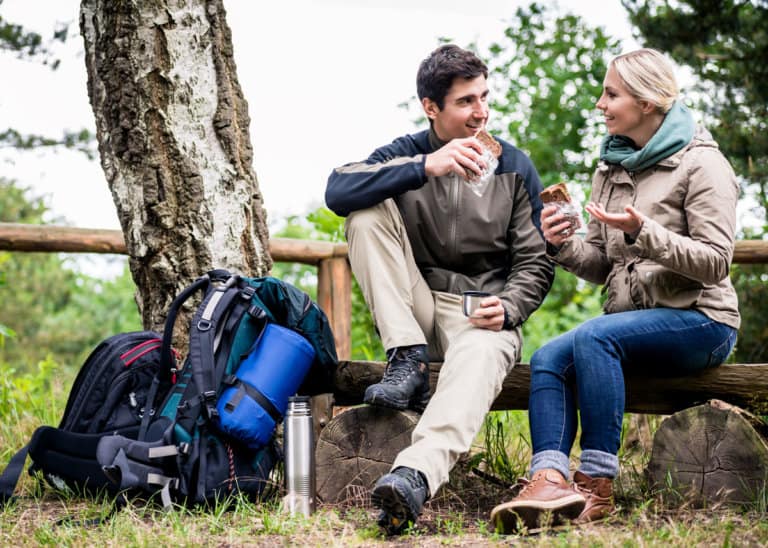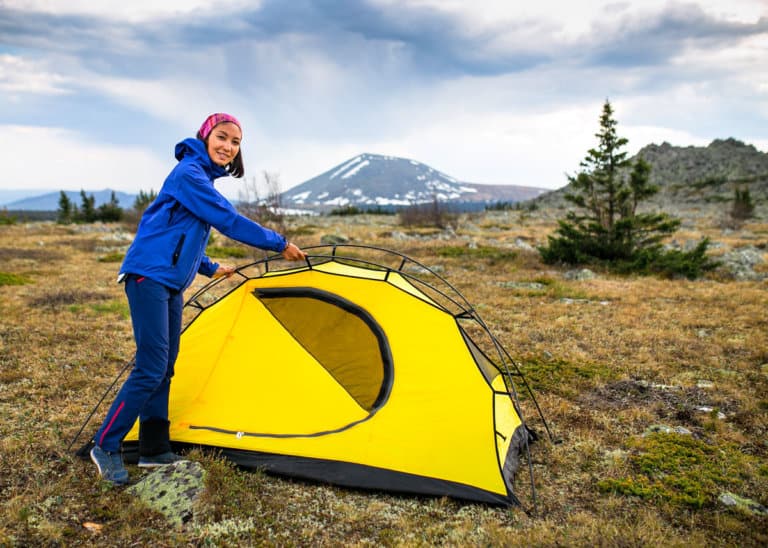How to Wash Dishes While Camping: 7 Tips for Fast & Safe Cleanup
Camping is one of summertime’s great pleasures. Nothing beats the taste of simple meals cooked outdoors after a long day in nature, but the last thing you want to do after you finish dinner is struggle through the clean-up process!
Here’s how to wash dishes while camping. Bring the necessary supplies, clean the work area, heat your water, wash – rinse – and dry each dish, clean the station again, and dispose of any food waste. If you have limited water, you can use rainwater or snowmelt.
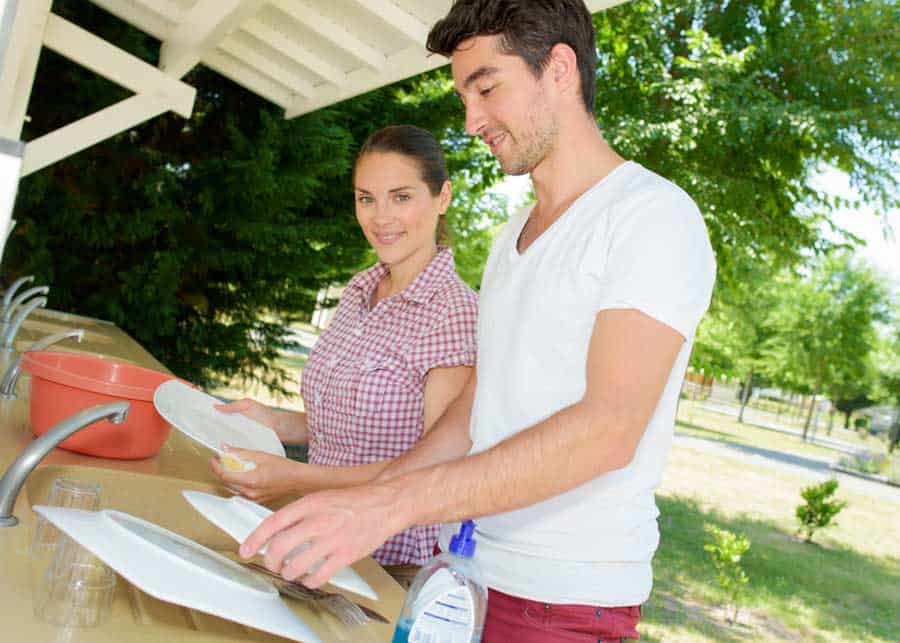
With these seven simple tips on how to wash dishes while camping, you can enjoy great meals outdoors and clean up in a snap, giving you more time to explore the great outdoors.
1. Bring The Right Supplies
Whether you are driving to the campsite or hiking in the backcountry, having a few necessary supplies will make washing dishes at your site a breeze.
Here are the supplies you should have to make dish cleanup (virtually) painless.
- Two Camping Sinks (or two clean buckets). Two clean buckets work in a pinch but can be bulky, especially if you’re hiking to the campsite.
- Biodegradable camp soap. Your regular dish soap, especially any soap containing sulfates, can negatively impact biodiversity, so bring biodegradable camp soap. Concentrated soap is perfect for camping because you only need a few drops.
- An anti-microbial sponge. A dual sponge and scouring pad work best for cleaning stubborn residue.
- Compact pot scraper for stuck-on food.
- Lightweight microfiber towels. These are quick-drying and fold-up small. Just be sure you have a system to tell apart your dishwashing towel from your bath towel.
- Trash bags to carry out food waste.
- Plenty of water. Some campsites have faucets on-site. Otherwise, you’ll need to carry in your water.
You’ll need a fair volume of hot water to wash your dishes. Here’s how to boil water while camping.
Some campgrounds have dishwashing stations, complete with hot water and an area to set your clean dishes. This setup makes the whole process much easier.
If you’ll be washing dishes on a picnic table or a stump, these tips will also work.
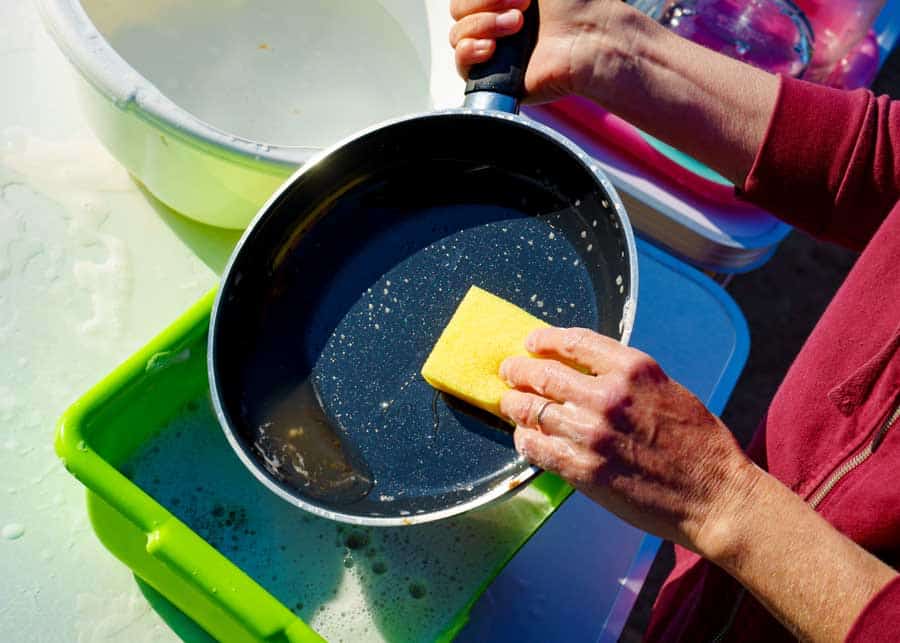
2. Prep Your Cleaning Station
Ideally, you’ll have one sink for washing and another for rinsing.
- Add warm water and a few drops of soap to the wash sink.
- Fill your rinse sink with clean water and set it aside.
- Make sure to gather all your dirty dishes. Finding a fork on the ground after you’ve dumped your water is a real drag.
Cooked (burned) on food? After scrubbing off as much food as possible add water to your cooking pot and let it heat over the fire. This step will dislodge any burnt food bits from the bottom and help you when it comes time to wash.
It isn’t easy to cook on a campfire. Here are a few tips for regulating fire temperature and 5 cooking methods.
3. Wash and Rinse
Add your dirty dishes to the wash sink, starting with your cleanest and ending with the pots and pans.
- You can leave dishes in warm soapy water to briefly soak. Scrub with the sponge the same way you would at home until completely clean.
- Once you remove all food waste, dunk your dishes, utensils, and pots in the rinse bucket one at a time to remove traces of soap.
- For extra disinfecting, boil water in a clean pot and add your utensils and plates.
Boiling water kills common microbes, but remember to dry your supplies after so that others don’t begin to spawn.
4. Dry Your Supplies
Putting away dishes while they’re still wet can cause bacteria to grow, so make sure everything is dry before you stack and pack it. And wet dishes will attract insects.
Lay your dishes out to air dry on a clean surface or use your microfiber towel to dry them.
Pack your dishes before turning in for the night so critters don’t come snooping.
5. Clean Up Your Wash Station
Strain any bits of food from your wash bucket and add them to your trash bag. Empty your wash bucket, but keep your rinse water for washing out the other bucket.
Depending on where you are camping, there may be rules for disposing of gray water.
A standard rule is to dispose of unclean water 200 meters from your campsite and a water source. If camping in an area with bears, you may want to dig a hole and bury your water to avoid unwanted nighttime visitors.
This is a critical step to avoiding bears when camping.
Fill your wash sink with the water from the rinse sink. Thoroughly clean your wash bucket and sponge, then dispose of the water.
Wring out your sponge and towel, and hang them to dry in the sun or by the fire.
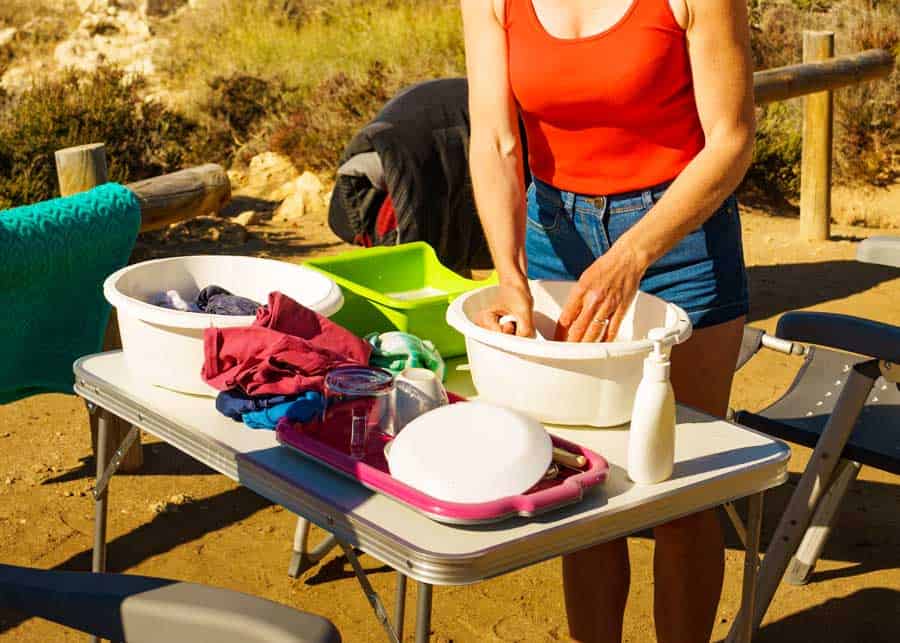
6. Avoid Food Waste
The first step is the fun part: eat everything you cook.
- Unless your campsite has trash bins, you’ll have to carry out any food you don’t eat.
- Or if you can make a hot campfire, you can also burn food waste. But you need to be sure that it is all destroyed or it will attract animals.
- Make sure you only cook what you can eat, though an active day outdoors will probably increase your appetite.
- Before you start washing, scrape as much food residue as possible from your cutlery, dishes, and pots, and add the food waste to your trash bag.
- If you carry out food waste, double bag it to avoid nasty spills.
7. Cleaning with Limited Water
If your campsite doesn’t have clean water, you’ll have a get a bit more creative.
Be aware that water from lakes or streams can host bacteria. If you boil it long enough, it will be sanitized of any organic contaminants.
Some other tips for conserving water include:
- Use rainwater or snow melt. Just be sure to rinse with clean water as a final step.
- Don’t fill your buckets all the way. Your rinse bucket in particular only needs to be about half-full.
- Have bread on hand to sop up any sauces or stews. You can use bread as an edible sponge if you’re low on water and get food residue off of plates and bowls without water.
- Camping by the beach? Sand can make a great abrasive for removing stuck food waste, though it can be difficult to get off when you’re done.
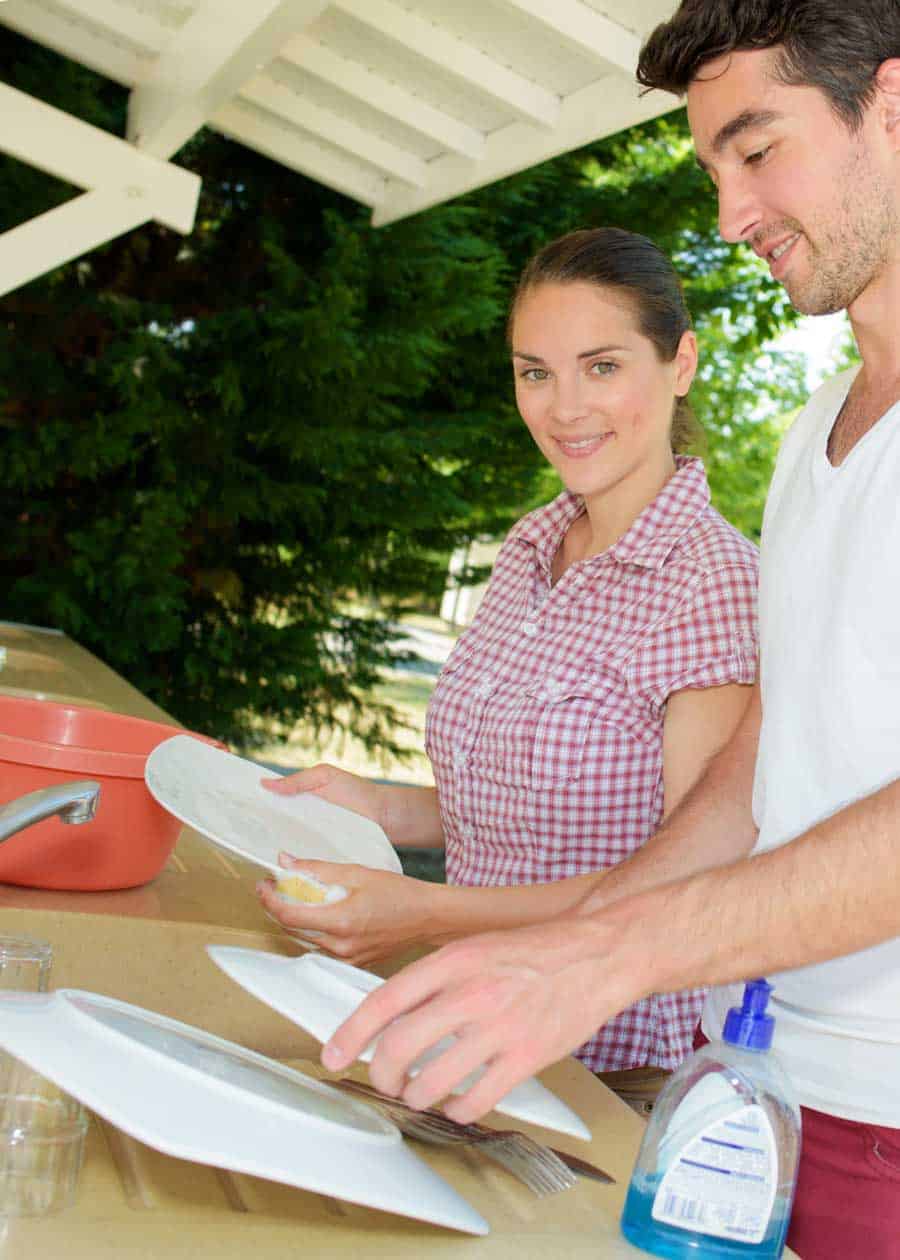
Your Turn
Now that you know how to wash dishes while camping, what’s stopping you? Pack your supplies, and you’ll be ready to tackle the great outdoors!
Have a tip to share? I would love to hear it!

